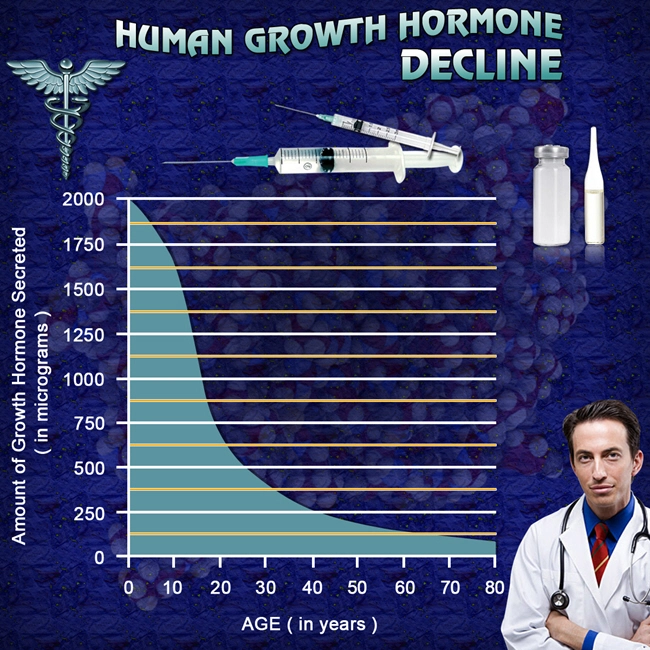
Introduction to Penile Edema
Penile edema, characterized by the swelling of the penis due to fluid accumulation, is a condition that can cause significant discomfort and concern for American males. Understanding the underlying causes, accurate diagnosis, and effective treatment strategies is crucial for managing this condition and restoring quality of life.
Causes of Penile Edema
Penile edema can arise from various factors, ranging from benign to more serious underlying conditions. One common cause is an allergic reaction, often triggered by exposure to certain medications, latex condoms, or personal care products. In such cases, the body's immune response leads to inflammation and fluid retention in the penile tissue.
Infections, such as balanitis or cellulitis, can also contribute to penile edema. These infections may be caused by bacteria, fungi, or sexually transmitted organisms, leading to inflammation and swelling of the penis. Additionally, trauma or injury to the penis, such as from vigorous sexual activity or accidents, can result in localized swelling and edema.
Systemic conditions, such as heart failure, kidney disease, or liver cirrhosis, can also manifest as penile edema. In these cases, the body's inability to properly regulate fluid balance leads to generalized swelling, including in the genital area. Furthermore, certain medications, such as calcium channel blockers or nonsteroidal anti-inflammatory drugs (NSAIDs), may cause fluid retention and contribute to penile edema as a side effect.
Diagnosis of Penile Edema
Accurate diagnosis of penile edema is essential for determining the appropriate treatment approach. A thorough medical history and physical examination by a healthcare professional are the first steps in the diagnostic process. The physician will inquire about the onset, duration, and severity of the swelling, as well as any associated symptoms or potential triggers.
In some cases, additional diagnostic tests may be necessary to identify the underlying cause of penile edema. These may include blood tests to assess kidney and liver function, urine analysis to detect signs of infection, or imaging studies, such as an ultrasound, to evaluate the penile tissue and surrounding structures.
If an infection is suspected, a swab or tissue sample may be collected for laboratory analysis to identify the causative organism. In cases where systemic conditions are suspected, further evaluation by a specialist, such as a cardiologist or nephrologist, may be warranted.
Treatment Strategies for Penile Edema
The treatment of penile edema depends on the underlying cause and severity of the condition. In cases of allergic reactions, identifying and avoiding the trigger is crucial. Antihistamines or topical corticosteroids may be prescribed to alleviate symptoms and reduce swelling.
For infections, appropriate antimicrobial therapy, such as antibiotics or antifungal medications, is essential to eradicate the causative organism and resolve the edema. In cases of trauma or injury, conservative measures, such as rest, ice application, and elevation of the penis, may be sufficient to reduce swelling and promote healing.
When penile edema is secondary to systemic conditions, treatment focuses on managing the underlying disease. This may involve medications to improve heart function, diuretics to reduce fluid retention, or lifestyle modifications to support overall health.
In severe cases of penile edema that do not respond to conservative measures, surgical intervention may be necessary. This could involve the creation of a small incision to drain accumulated fluid or the removal of excess tissue to alleviate pressure and promote healing.
Conclusion
Penile edema is a condition that can significantly impact the well-being of American males. By understanding the various causes, seeking prompt medical attention for accurate diagnosis, and following appropriate treatment strategies, individuals can effectively manage this condition and restore their quality of life. Open communication with healthcare professionals and adherence to prescribed treatments are key to achieving optimal outcomes in the management of penile edema.
Contact Us Today For A Free Consultation
Dear Patient,
Once you have completing the above contact form, for security purposes and confirmation, please confirm your information by calling us.
Please call now: 1-800-380-5339.
Welcoming You To Our Clinic, Professor Tom Henderson.

- Managing Penile Skin Conditions: Symptoms, Treatments, and Prevention Strategies [Last Updated On: February 21st, 2025] [Originally Added On: February 21st, 2025]
- Understanding the Psychological Toll of Penile Health Issues: A Comprehensive Overview for American Males [Last Updated On: March 1st, 2025] [Originally Added On: February 28th, 2025]
- Advancements in Penile Prostheses: Enhancing ED Treatment and Patient Satisfaction [Last Updated On: March 17th, 2025] [Originally Added On: March 17th, 2025]
- Penile Trauma: Emergency Care, Long-Term Management, and Latest Advances in Penis Science [Last Updated On: March 18th, 2025] [Originally Added On: March 18th, 2025]
- Testosterone's Crucial Role in Penile Health and Function for American Males [Last Updated On: March 19th, 2025] [Originally Added On: March 19th, 2025]
- Penile Enlargement: Safety, Efficacy, and Methods for American Males [Last Updated On: March 19th, 2025] [Originally Added On: March 19th, 2025]
- Penile Nerve Blocks: Enhancing Urological Surgery and Pain Management for American Males [Last Updated On: March 19th, 2025] [Originally Added On: March 19th, 2025]
- Optimal Penile Hygiene: Practices for Health and Well-being in American Males [Last Updated On: March 19th, 2025] [Originally Added On: March 19th, 2025]
- Lifestyle Factors Impacting Penile Health: Diet, Exercise, and More for American Males [Last Updated On: March 20th, 2025] [Originally Added On: March 20th, 2025]
- Understanding and Managing Penile Ulcers in American Males: Causes, Diagnosis, and Treatment [Last Updated On: March 20th, 2025] [Originally Added On: March 20th, 2025]
- Obesity's Impact on Penile Function: Vascular, Hormonal, and Psychological Effects [Last Updated On: March 21st, 2025] [Originally Added On: March 21st, 2025]
- Spinal Cord Injuries and Penile Function: Impacts and Management for American Males [Last Updated On: March 21st, 2025] [Originally Added On: March 21st, 2025]
- Chemotherapy's Impact on Penile Health: Effects, Management, and Long-term Considerations [Last Updated On: March 22nd, 2025] [Originally Added On: March 22nd, 2025]
- Medications and Penile Function: Impacts on American Males' Health [Last Updated On: March 22nd, 2025] [Originally Added On: March 22nd, 2025]
- Genetics of Penile Development: Insights and Advances for American Males [Last Updated On: March 22nd, 2025] [Originally Added On: March 22nd, 2025]
- Penile Vascular Health: Understanding, Preventing, and Treating Vascular-Related ED [Last Updated On: March 22nd, 2025] [Originally Added On: March 22nd, 2025]
- Penile Biopsy: Essential Diagnostic Tool for Urological Health in American Males [Last Updated On: March 22nd, 2025] [Originally Added On: March 22nd, 2025]
- Penile Skin Grafts: Indications, Procedures, and Outcomes for American Males [Last Updated On: March 22nd, 2025] [Originally Added On: March 22nd, 2025]
- Dietary Impact on Penile Health: Antioxidants, Omega-3s, and Nitrates [Last Updated On: March 23rd, 2025] [Originally Added On: March 23rd, 2025]
- Managing Penile Allergies: Symptoms, Diagnosis, and Effective Strategies for American Males [Last Updated On: March 23rd, 2025] [Originally Added On: March 23rd, 2025]
- Penile Prosthetics: Effective Solution for Severe Erectile Dysfunction in American Males [Last Updated On: March 23rd, 2025] [Originally Added On: March 23rd, 2025]
- Penile Ultrasound: Diagnosing Sexual Dysfunction in American Males [Last Updated On: March 24th, 2025] [Originally Added On: March 24th, 2025]
- Penile Girth's Impact on Sexual Satisfaction: Insights for American Males [Last Updated On: March 24th, 2025] [Originally Added On: March 24th, 2025]
- Understanding Penile Numbness: Causes, Diagnosis, and Treatment Strategies [Last Updated On: March 24th, 2025] [Originally Added On: March 24th, 2025]
- Chronic Diseases and Penile Health: Impacts and Management for American Males [Last Updated On: March 24th, 2025] [Originally Added On: March 24th, 2025]
- Penile Warts: Causes, Symptoms, Treatment, and Prevention for American Males [Last Updated On: March 24th, 2025] [Originally Added On: March 24th, 2025]
- Penile MRI: Advancing Diagnosis and Treatment in Men's Health [Last Updated On: March 24th, 2025] [Originally Added On: March 24th, 2025]
- Understanding Penile Rash: Types, Causes, and Effective Treatments for American Men [Last Updated On: March 25th, 2025] [Originally Added On: March 25th, 2025]
- Understanding Penile Discharge: Causes, Symptoms, and Treatment for American Males [Last Updated On: March 25th, 2025] [Originally Added On: March 25th, 2025]
- Penile Reconstruction: Techniques, Outcomes, and Psychological Impact on American Males [Last Updated On: March 25th, 2025] [Originally Added On: March 25th, 2025]
- Penile Vein Anatomy, Function, and Common Disorders: A Comprehensive Overview [Last Updated On: March 25th, 2025] [Originally Added On: March 25th, 2025]
- Understanding and Managing Penile Sensory Neuropathy in American Males [Last Updated On: March 25th, 2025] [Originally Added On: March 25th, 2025]
- Hormonal Imbalances and Their Impact on Penile Health in American Males [Last Updated On: March 25th, 2025] [Originally Added On: March 25th, 2025]
- Understanding Penile Discoloration: Causes, Symptoms, and Treatment Options for American Males [Last Updated On: March 25th, 2025] [Originally Added On: March 25th, 2025]
- Neurological Disorders' Impact on Penile Function: Insights and Management Strategies [Last Updated On: March 26th, 2025] [Originally Added On: March 26th, 2025]
- Understanding Penile Lesions: Types, Causes, and Medical Interventions for American Males [Last Updated On: March 26th, 2025] [Originally Added On: March 26th, 2025]
- Penile Lymphatic System: Functions, Disorders, and Health Management [Last Updated On: March 26th, 2025] [Originally Added On: March 26th, 2025]
- Understanding and Managing Penile Pain: Causes, Diagnosis, and Treatment Strategies [Last Updated On: March 26th, 2025] [Originally Added On: March 26th, 2025]
- Penile Blood Tests: A Vital Tool for Diagnosing Systemic Health Issues in Men [Last Updated On: March 26th, 2025] [Originally Added On: March 26th, 2025]
- Penile Piercings: Health Risks, Types, and Medical Advice for American Males [Last Updated On: March 26th, 2025] [Originally Added On: March 26th, 2025]
- Penile Arteries and Erection Health: A Comprehensive Guide for American Males [Last Updated On: March 26th, 2025] [Originally Added On: March 26th, 2025]
- Understanding Penile Swelling: Causes, Diagnosis, and Management for American Males [Last Updated On: March 27th, 2025] [Originally Added On: March 27th, 2025]
- Exploring Penile Sensitivity: Impact on Sexual Health and Function in American Males [Last Updated On: March 27th, 2025] [Originally Added On: March 27th, 2025]
- Understanding Penile Bleeding: Causes, Symptoms, and Emergency Care for American Males [Last Updated On: March 27th, 2025] [Originally Added On: March 27th, 2025]
- Penile Nerve Anatomy: Impact on Sexual Health and Function in American Men [Last Updated On: March 27th, 2025] [Originally Added On: March 27th, 2025]
- Penile Injuries: Types, Impact on Sexual Function, and Importance of Timely Treatment [Last Updated On: March 27th, 2025] [Originally Added On: March 27th, 2025]
- Radiation Therapy's Impact on Penile Health: Effects, Management, and Future Research [Last Updated On: March 27th, 2025] [Originally Added On: March 27th, 2025]
- Understanding Penile Itching: Causes, Symptoms, and Effective Treatments [Last Updated On: March 28th, 2025] [Originally Added On: March 28th, 2025]
- Understanding Penile Lumps: Types, Causes, and Management for American Males [Last Updated On: March 29th, 2025] [Originally Added On: March 29th, 2025]
- Penile Health and Fertility: Insights and Management for American Males [Last Updated On: March 29th, 2025] [Originally Added On: March 29th, 2025]
- Penile Sores: Causes, Symptoms, and Medical Interventions for American Males [Last Updated On: March 30th, 2025] [Originally Added On: March 30th, 2025]
- Penile Health and Overall Well-being: Insights and Strategies for American Males [Last Updated On: March 30th, 2025] [Originally Added On: March 30th, 2025]
- Understanding and Treating Penile Redness: Causes, Symptoms, and Effective Solutions [Last Updated On: April 1st, 2025] [Originally Added On: April 1st, 2025]
- Understanding Penile Dermatitis: Symptoms, Causes, and Treatment for American Males [Last Updated On: April 2nd, 2025] [Originally Added On: April 2nd, 2025]
- Penile Health and Mental Well-being: Insights for American Males [Last Updated On: April 4th, 2025] [Originally Added On: April 4th, 2025]
- Penile Health and Partner Satisfaction: Insights for American Males [Last Updated On: April 5th, 2025] [Originally Added On: April 5th, 2025]
- Understanding Penile Blisters: Causes, Symptoms, and Treatment Options for Men [Last Updated On: April 7th, 2025] [Originally Added On: April 7th, 2025]
- Causes, Diagnosis, and Management of Penile Burning in American Males [Last Updated On: April 8th, 2025] [Originally Added On: April 8th, 2025]
- Penile Health and STI Prevention: A Comprehensive Guide for American Males [Last Updated On: April 8th, 2025] [Originally Added On: April 8th, 2025]
- Understanding Penile and Prostate Health: A Comprehensive Guide for American Males [Last Updated On: April 8th, 2025] [Originally Added On: April 8th, 2025]
- Penile Health Impact on Urinary Function: Insights for American Males [Last Updated On: April 8th, 2025] [Originally Added On: April 8th, 2025]
- Managing Penile Sensitivity Disorders: Causes, Diagnosis, and Treatment Options [Last Updated On: April 9th, 2025] [Originally Added On: April 9th, 2025]
- Understanding and Managing Penile Dryness: Causes, Symptoms, and Effective Treatments [Last Updated On: April 9th, 2025] [Originally Added On: April 9th, 2025]
- Understanding Penile Foreskin Health: Causes, Symptoms, and Care [Last Updated On: April 9th, 2025] [Originally Added On: April 9th, 2025]
- Penile Health as Cardiovascular Indicator: Study Insights for American Males [Last Updated On: April 11th, 2025] [Originally Added On: April 11th, 2025]
- Penile Health: Impact on Reproductive Wellness and Integrated Care Strategies [Last Updated On: April 12th, 2025] [Originally Added On: April 12th, 2025]
- Managing Penile Odor: Causes, Symptoms, and Effective Treatment Strategies for Men [Last Updated On: April 12th, 2025] [Originally Added On: April 12th, 2025]
- Penile Health and Hormonal Balance: A Comprehensive Guide for American Men [Last Updated On: April 13th, 2025] [Originally Added On: April 13th, 2025]
- Penile Health and Immune System: A Comprehensive Guide for American Men [Last Updated On: April 15th, 2025] [Originally Added On: April 15th, 2025]
- Understanding Penile Irritation: Causes, Symptoms, and Dermatological Treatments for American Men [Last Updated On: April 15th, 2025] [Originally Added On: April 15th, 2025]
- Aging and Penile Sensitivity: Understanding Changes and Maintaining Health [Last Updated On: April 15th, 2025] [Originally Added On: April 15th, 2025]
- Penile and Musculoskeletal Health: Causes, Symptoms, Treatments, and Holistic Approaches [Last Updated On: April 16th, 2025] [Originally Added On: April 16th, 2025]
- Penile Health and Sexual Function: Medical Insights and Holistic Management Strategies [Last Updated On: April 16th, 2025] [Originally Added On: April 16th, 2025]
- Exploring the Link Between Penile and Respiratory Health in American Males [Last Updated On: April 18th, 2025] [Originally Added On: April 18th, 2025]
- Penile Health and Endocrine Disorders: Causes, Symptoms, and Management Strategies [Last Updated On: April 18th, 2025] [Originally Added On: April 18th, 2025]
- Penile Health and Kidney Function: Vital Connections and Preventive Measures for Men [Last Updated On: April 19th, 2025] [Originally Added On: April 19th, 2025]
- Neurological Health's Impact on Penile Sensitivity: Insights for American Males [Last Updated On: April 19th, 2025] [Originally Added On: April 19th, 2025]
- Exploring the Link Between Penile and Gastrointestinal Health in American Males [Last Updated On: April 19th, 2025] [Originally Added On: April 19th, 2025]








